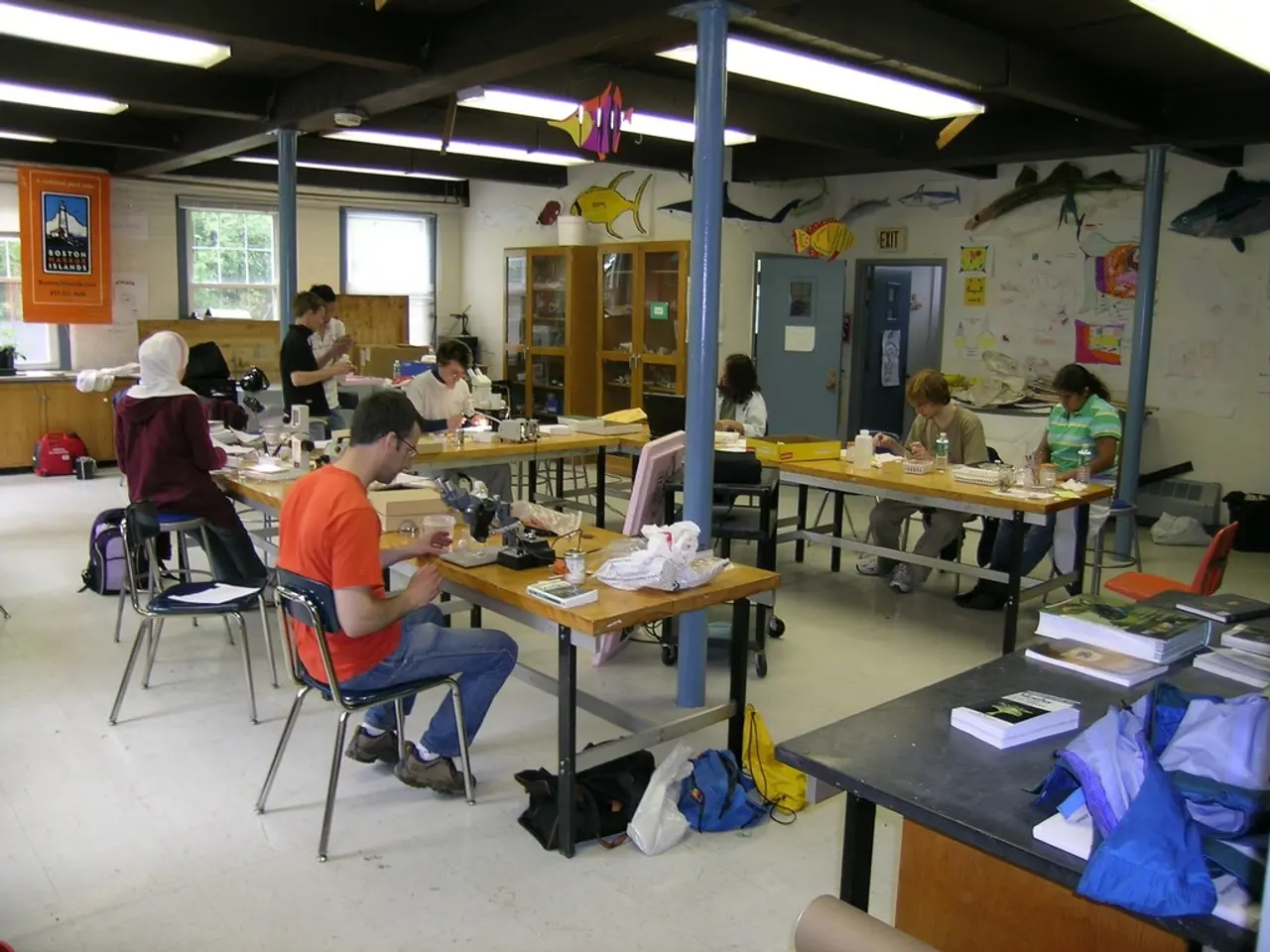America's Most Destructive Financial Drain That Remains Silent in Discussion
In the United States, the quality and depth of financial education varies widely across states, and many Americans find themselves either underinsured or overpaying for insurance coverage that doesn't match their needs. This lack of financial knowledge can lead to significant issues, such as high levels of debt, insufficient savings, and missed opportunities for wealth-building.
Financial literacy, which encompasses skills like budgeting, saving, debt management, investing, and understanding financial risks, is essential for individuals to gain control over their finances and avoid common pitfalls.
Reducing Wealth Disparities
Financial education plays a crucial role in reducing wealth disparities. Lower- and middle-income households, who often have fewer financial resources, can learn how to invest and build assets, thus narrowing the gap in savings and investment between them and higher-income groups. Studies show that a substantial portion of wealth inequality is linked to financial literacy differences.
Avoiding Debt Traps
Improved financial literacy can help Americans avoid debt traps by providing a better understanding of credit, interest rates, and borrowing options. This knowledge can prevent people from falling into predatory lending and help them manage debt effectively, keeping out of high-cost debt cycles that can devastate financial stability.
Enhancing Economic Resilience
Financial literacy fosters emergency savings and thoughtful financial planning, which increase individual economic resilience to shocks such as job loss or medical emergencies. This, in turn, reduces economic fragility.
Focus on Underserved Communities
Financial literacy initiatives focusing on underserved and low-income communities are especially critical, as these groups often have the greatest barriers to accessing traditional financial education and services. Efforts that combine education with actionable tools and culturally relevant approaches have shown promise in shifting financial behaviors for the better.
The Impact of Financial Literacy
Improved financial literacy equips individuals with the capability to make better decisions, build wealth over time, and break free from cycles of debt and economic vulnerability. This contributes to a more equitable and stable economy.
Students receiving high-quality financial education demonstrate measurably better financial behaviors in adulthood, including higher savings and lower debt levels. However, only 23 states require high school students to take a course in personal finance, leaving many Americans without this essential education.
Moreover, America's reluctance to openly discuss money creates a psychological barrier to financial literacy. Financial shame, the stress and anxiety about money, is a significant psychological barrier for many Americans.
In conclusion, improving financial literacy is crucial for reducing wealth disparities, avoiding debt traps, and enhancing economic resilience in the United States. By providing high-quality financial education, especially to underserved communities, and encouraging open conversations about money, we can help individuals make informed financial decisions, avoid costly mistakes, and build wealth sustainably.
Financial literacy education, an integral part of education-and-self-development, encompasses skills like budgeting, saving, debt management, and investing. This education can play a significant role in reducing wealth disparities among lower- and middle-income households and foster emergencies savings and thoughtful financial planning, hence increasing economic resilience.
By improving personal-finance knowledge, individuals can learn to avoid debt traps, such as falling into predatory lending and high-cost debt cycles, and make better financial decisions that contribute to a more equitable and stable economy.




